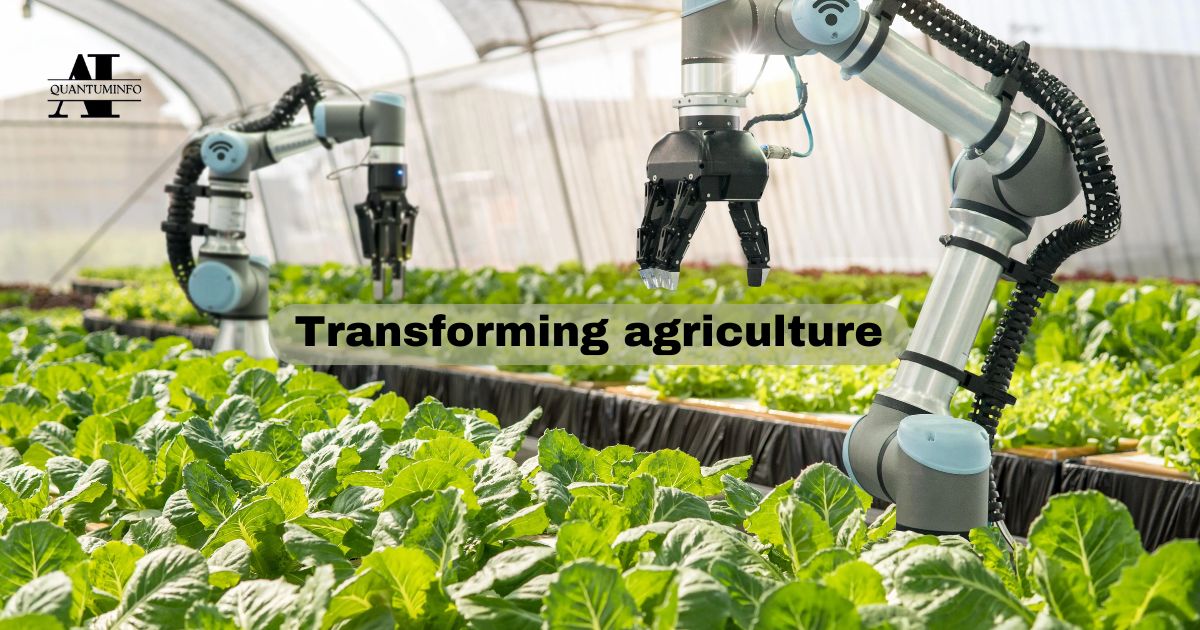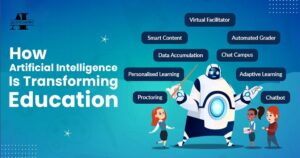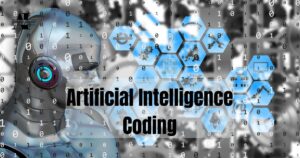Artificial intelligence (AI) is changing the way we farm. It helps farmers grow more food with less effort. From weather forecasting to crop monitoring, AI makes farming more efficient and effective. This technology is also helping to reduce waste and improve sustainability. The future of agriculture looks bright with AI guiding it.
What if you could grow more food with less effort? Imagine fields that monitor themselves, predict the weather, and optimize development with AI. Artificial Intelligence for Agriculture is not just a buzzword. This is a game-changer. Ready to discover how this cutting-edge technology is changing farming? Let’s uncover the future of farming with AI.
Imagine a future where artificial intelligence (AI) for agriculture makes farming smarter and more efficient. AI helps improve crop monitoring, weather forecasting, and growth, all with less effort on the part of farmers. Discover how this cutting-edge technology is revolutionizing agriculture and paving the way for a more sustainable future.
What is artificial intelligence?
Artificial intelligence (AI) refers to the simulation of human intelligence processes by machines, especially computer systems. These processes include learning, reasoning, and self-correction. AI involves the development of algorithms and models that enable machines to perform tasks that normally require human intelligence, such as problem-solving and decision-making.
In the context of agriculture, AI leverages data from various sources — such as sensors, satellites, and drones — to provide actionable insights that help farmers improve their operations. The goal is to increase productivity, efficiency, and sustainability in farming practices.
The impact of AI on modern agriculture
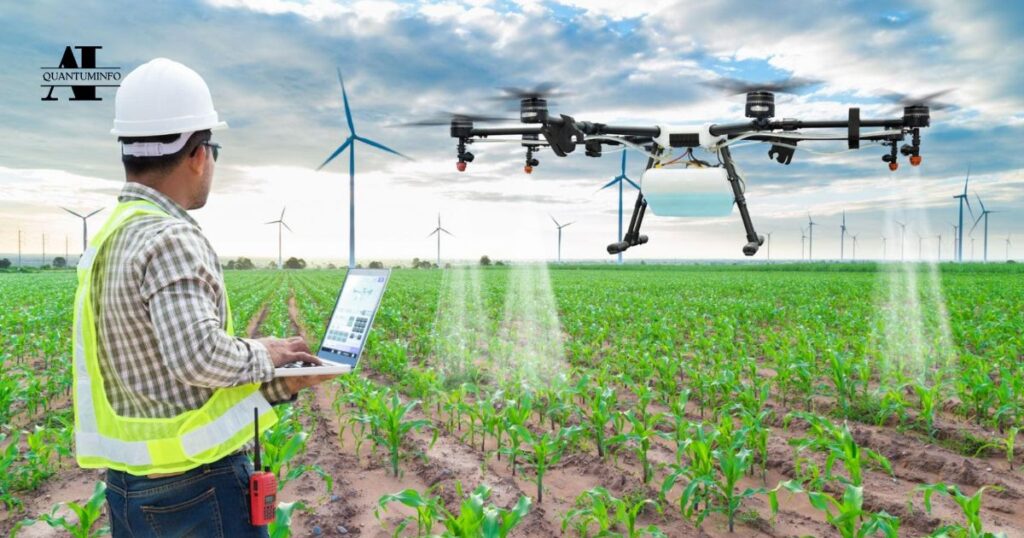
Healthy farming
Precision farming represents one of the most transformative applications of AI in agriculture. This technique involves the use of technology to observe, measure, and respond to changes in crops. AI plays an important role in processing data collected from various sources, including satellite imagery, drones, and ground sensors.
Precision farming helps farmers improve field-level management by providing detailed information on soil conditions, crop health, and environmental factors. For example, AI can analyze soil moisture levels and recommend the right amount of water needed for different parts of a field.
This targeted approach reduces waste and ensures that crops receive the maximum amount of resources, leading to increased yields and more efficient use of inputs.
Crop monitoring
Crop monitoring is another area where AI has made significant progress. AI-powered systems use drones and ground sensors to continuously monitor crop health and growth. These systems capture high-resolution images and data, which AI algorithms then analyze to identify problems such as pests, diseases, and nutrient deficiencies.
Early detection of problems is critical to prevent crop damage and ensure a successful harvest. AI can detect subtle changes in crop appearance or growth patterns that may indicate the presence of pests or diseases. By addressing these issues quickly, farmers can apply targeted treatments, reduce the need for broad-spectrum pesticides, and protect their crops more effectively.
Weather forecast
Weather is an important factor in agriculture, affecting planting schedules, irrigation requirements, and harvest times. AI improves weather forecasting by analyzing data from weather stations, satellites, and historical weather records. Advanced AI models can process this data to produce highly localized and accurate weather forecasts.
This improved forecasting helps farmers make informed decisions about their operations. For example, if AI predicts an upcoming drought or storm, farmers can take precautionary measures to protect their crops. This proactive approach reduces the risk of weather-related damage and helps farmers plan their activities more effectively.
Soil health management
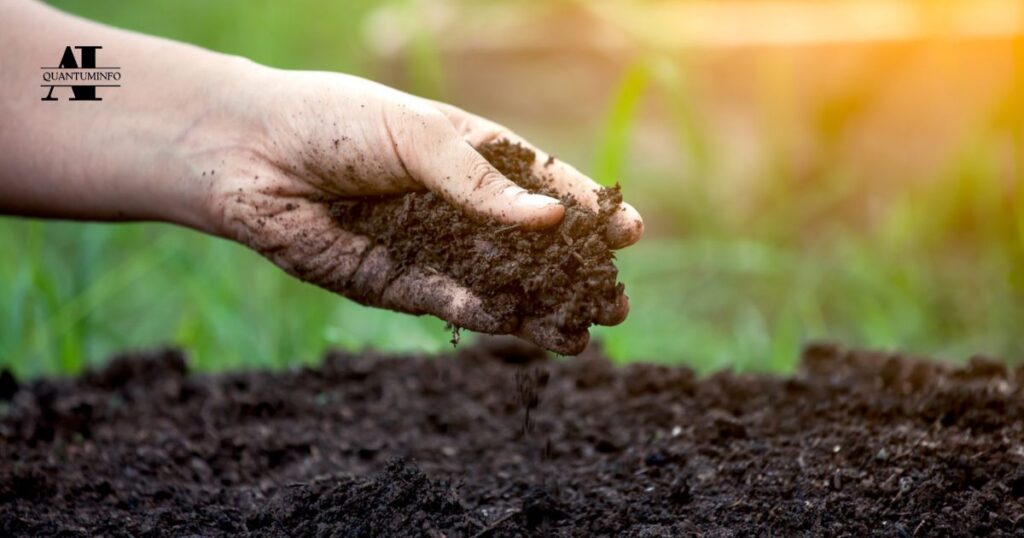
Maintaining healthy soil is essential for successful farming. AI supports soil health management by analyzing data from soil sensors and laboratory tests. These sensors provide information about soil moisture, nutrient levels, and pH balance.
AI systems use this data to recommend specific actions to improve soil health. For example, if AI detects low nutrient levels, it can recommend appropriate types and amounts of fertilizers. By maintaining optimal soil conditions, farmers can increase crop growth and yield.
Here, Getting Started with Artificial Intelligence: A Beginner’s Guide
Automatic machinery
AI is also revolutionizing agricultural machinery. Modern tractors integrate, and other implements can now operate autonomously using AI technology. These machines are equipped with sensors, GPS, and AI algorithms that enable them to navigate fields, plant seeds, and harvest crops with high precision.
Autonomous machinery reduces the need for manual labor and increases efficiency. This allows farmers to cover more land in less time, leading to higher yields and lower operational costs. AI-powered machinery also improves planting and harvesting accuracy, resulting in improved crop quality and yield.
Control of pests and diseases
Pests and diseases present significant challenges to agriculture, often causing considerable crop damage. AI helps manage these threats by analyzing data from various sources, including sensors, cameras, and historical records. AI algorithms can recognize patterns and predict where pest infestations and disease outbreaks are likely.
By identifying problems early, AI enables farmers to implement targeted treatment and control measures. This approach reduces the need for large-scale pesticide use and minimizes crop damage. Additionally, AI can help develop integrated pest management strategies that combine biological, mechanical, and chemical control for more effective pest management.
Production forecasting
Accurate yield forecasting is essential for effective farm management and planning. AI improves yield forecasting by analyzing data from multiple sources, including historical crop performance, weather conditions, and current crop health.
AI models can generate accurate yield forecasts, helping farmers plan their harvest and marketing strategies. Accurate forecasting enables farmers to manage their resources more effectively, avoid overproduction or shortages, and make informed decisions about future planting seasons.
Supply chain optimization
An agricultural supply chain consists of several stages from production to distribution. AI can improve this supply chain by analyzing demand, inventory, and transportation data.
AI systems can predict supply and demand trends, helping farmers and suppliers manage their resources more efficiently. By improving supply chain management, AI reduces waste, lowers costs, and ensures that fresh produce reaches consumers more quickly. This reform benefits both farmers and consumers by increasing the efficiency of the food distribution network.
Benefits of AI in Agriculture
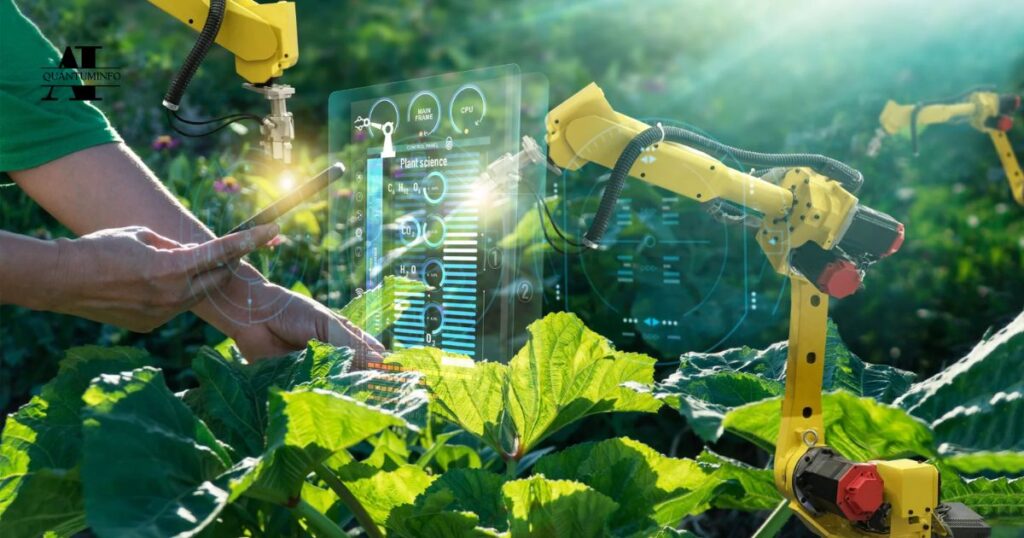
Increased efficiency
AI increases farming efficiency by automating various tasks and optimizing resource utilization. Automated systems reduce the need for manual labor and increase productivity. AI helps farmers make data-driven decisions, resulting in more efficient use of resources such as water, fertilizers, and pesticides. Overall, AI improves the efficiency of farming operations and contributes to higher yields and lower costs.
Better crop production
AI enables farmers to achieve better crop yields by providing accurate recommendations and insights. Precision farming, better crop monitoring, and accurate yield forecasts all contribute to increased yields. By using resources more efficiently and solving problems faster, AI helps farmers grow more crops and improve their financial results.
Sustainable farming
Sustainability is a key concern in modern agriculture, and AI supports this goal by promoting environmentally friendly practices. AI helps reduce waste, reduce chemical use and optimize resource utilization. By enabling more efficient and targeted farming practices, AI contributes to environmental protection and ensures the long-term viability of agricultural systems.
Here, How AI is Revolutionizing Cybersecurity Today
Better decision-making.
AI provides farmers with valuable insights and data-driven recommendations. This information helps farmers make informed decisions about planting, watering and harvesting. Better decision-making leads to more successful farming operations and better results.
Reduction of environmental impact
AI helps reduce the environmental impact of farming by optimizing resource use and minimizing waste. Sustainable practices promoted by AI contribute to healthy ecosystems and reduced carbon footprint. By improving resource efficiency and reducing reliance on chemicals, AI supports environmentally friendly farming practices.
Challenges and considerations
While AI offers many benefits, there are also challenges to consider. Implementing AI technology can be expensive, and not all farmers have access to the necessary tools and resources. Additionally, there may be concerns about data privacy and security.
Farmers need to be trained to use AI tools effectively, and support systems must be in place to facilitate adoption. Ensuring equitable access to AI technology is critical to maximizing its benefits and helping farmers across regions. Successful integration of AI in agriculture will require addressing these challenges.
The future of AI in agriculture
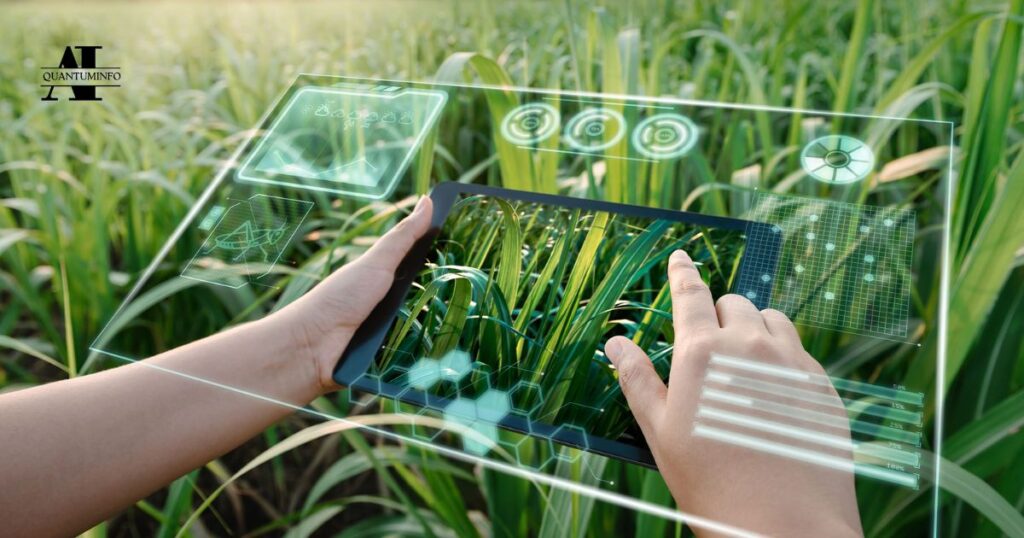
The future of AI in agriculture is promising and full of potential. As technology advances, AI will play an increasingly important role in shaping the future of farming. Innovations in AI will lead to smarter, more efficient, and more sustainable farming practices.
Future developments may include more advanced AI algorithms, better sensor technology, and better data analytics. These developments will make agriculture more productive and environmentally friendly. The integration of AI with other emerging technologies, such as blockchain and the Internet of Things (IoT), may also offer new opportunities for innovation in agriculture.
Frequently Asked Questions
What is artificial intelligence (AI), and how is it applied in agriculture?
AI refers to computer systems that mimic human intelligence to perform tasks. In agriculture, AI improves crop management, optimizes resources, and improves decision-making.
How does AI contribute to precision farming and what benefits does it offer?
AI processes data from sensors and drones to improve field management. It reduces resource wastage, improves crop yield, and increases efficiency.
In what ways does AI improve crop monitoring and management?
AI analyzes data from sensors and drones to detect crop problems early. This helps in applying targeted treatments and managing crop health effectively.
How are drones and sensors used in AI-powered crop monitoring systems?
Drones capture high-resolution images, while sensors collect data on soil and crops. AI analyzes this data to monitor health and detect problems.
What role does AI play in predicting weather patterns and its impact on farming?
AI analyzes weather data to provide accurate forecasts. It helps farmers plan planting, irrigation, and harvesting based on forecasted conditions.
Final Thoughts
Artificial intelligence is revolutionizing agriculture by making farming smarter, more efficient, and more sustainable. From precision farming and crop monitoring to automated machinery and supply chain optimization, AI is changing the way we grow food.
Although there are challenges to overcome, the benefits of AI in agriculture are substantial. As technology continues to evolve, AI will play an important role in the future of farming. By adopting AI, farmers can achieve higher yields, better crop yields, and more sustainable practices.
The future of agriculture is bright, and it is powered by artificial intelligence. AI’s potential to enhance agricultural practices and address global challenges such as food security and environmental sustainability makes it a key player in the future of farming.
As we move forward, continued innovation and collaboration will be necessary to maximize the benefits of AI and ensure its positive impact on agriculture worldwide.

